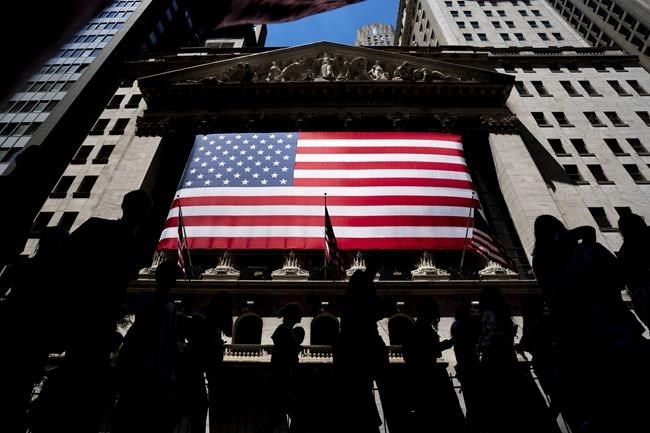NEW YORK (AP) — Election Day brought another tick higher for stocks, as Wall Street braces for the results from the day’s midterm elections and a big update on inflation that’s due later in the week. The S&P 500 rose 0.6% Tuesday, its third straight gain. Trading was tentative through the day, and Wall Street’s benchmark index flipped between an even bigger gain and a modest loss during the afternoon. Analysts say investors appear to be making bets for Republicans to gain control of at least one house of Congress, which could mean relatively little change for economic policies.
THIS IS A BREAKING NEWS UPDATE. AP’s earlier story follows below.
NEW YORK (AP) — Election Day is bringing another tick higher for stocks on Tuesday, as Wall Street braces for the results from the day’s midterm elections and a big update on inflation that’s due later in the week.
The S&P 500 was 1% higher and on track for a third straight gain. But trading was tentative through the day, and Wall Street’s benchmark index flipped between an even bigger gain and a modest loss during the afternoon.
The Dow Jones Industrial Average was up 465 points, or 1.4%, at 33,292, as of 3:33 p.m. Eastern time, and the Nasdaq composite was 0.9% higher.
With Americans heading to the polls across the country amid high inflation and worries about a possible recession, analysts say investors appear to be making bets for Republicans to gain control of at least one house of Congress. That combined with a Democratic White House could lead to little getting done in Washington, which may be bad for society but could also keep the status quo on economic policy. And markets tend to abhor uncertainty.
If Republicans do end up wining control of at least the House of Representatives, the reaction in financial markets could be modest, according to economists at Goldman Sachs. Stocks have already rallied in anticipation of it, with two straight days of gains of at least 1% before Election Day. But a surprise win by Democrats could upset the market if it leads investors to expect higher corporate taxes and other policy changes.
A Republican win could also introduce its own risks that show themselves over time. For one, it could mean any help for the economy from Congress in the event of a possible recession would be less likely to pass and weaker than it would otherwise be under a Congress controlled by Democrats.
Economists are gaming out what could happen in a recession because something much more impactful than politics is dominating the economy, as well as markets: high inflation and the swift interest-rate hikes the Federal Reserve is pushing through to get it under control.
That’s why the more important milestone for markets this week than Election Day may be Thursday’s upcoming report on inflation. That data, which economists expect to show a fourth straight month of slowing gains from the summer's peak, will likely carry much more influence over what the Fed does with rates.
“It will continue to be front and center until we are out of the woods from this high inflationary environment,” said Bill Merz, head of capital market research at U.S. Bank Wealth Management. “The Fed doesn’t even know how far they need to go, certainly nobody else does.”
By raising rates, the Fed is intentionally slowing the economy by making it more expensive to borrow money. That in turn should hopefully stamp down inflation, which is near its highest rate in four decades. The problem for markets is that high rates drag down prices for stocks and other investments while raising the risk of a recession if rates go too far.
Even though the Fed has said it may soon pare back the size of its increases, it is still warning markets that it may ultimately hike rates higher than expected because of just how stubborn high inflation has been. The Fed has already hiked its key overnight rate to a range of 3.75% to 4%, up from virtually zero in March, and more investors are expecting it to top 5% next year.
A softer reading than expected on Thursday could give the Fed leeway to loosen up a bit after raising interest rates at a furious pace this year. But a worse-than-expected reading could have the opposite effect. The Fed has already said it would prefer taking interest rates too high rather than leave them too low because a recession is a less-bad outcome than punishingly high and enduring inflation.
“The point though, is how long does it take to get back to a more normal inflation rate and the longer it takes, the more restrictive the Fed is compelled to be,” Merz said.
Stocks are also moving on corporate profit reports, as the tail end of earnings season enters its tail end. Take-Two Interactive sank 12.6% after reporting weaker results for the latest quarter than expected.
Damian J. Troise And Stan Choe, The Associated Press




